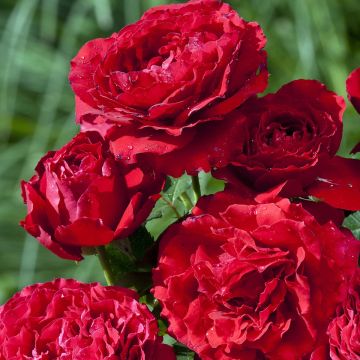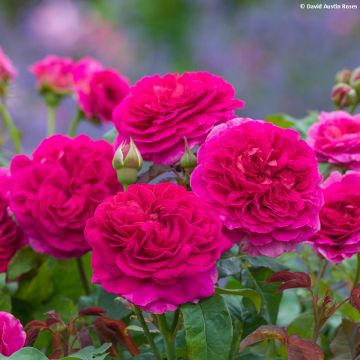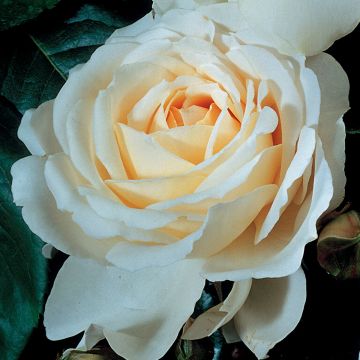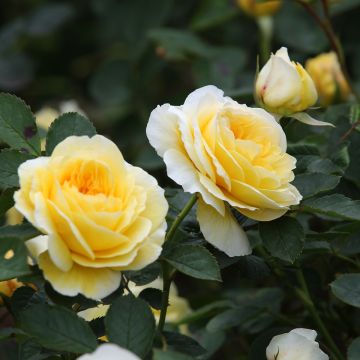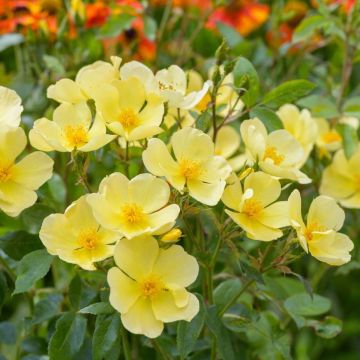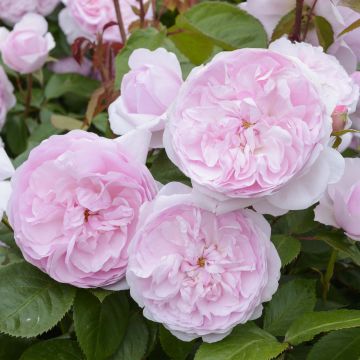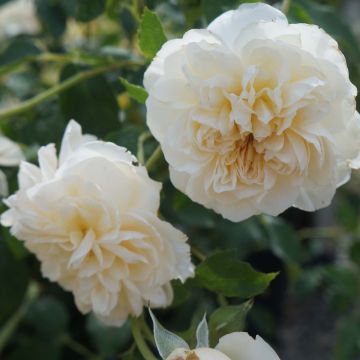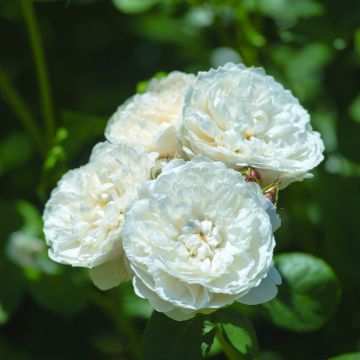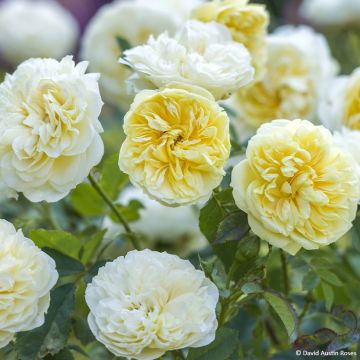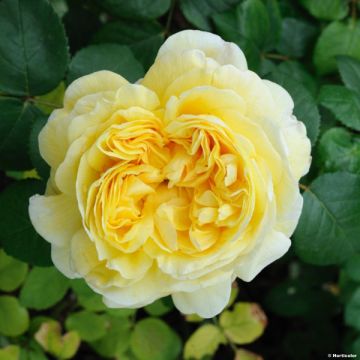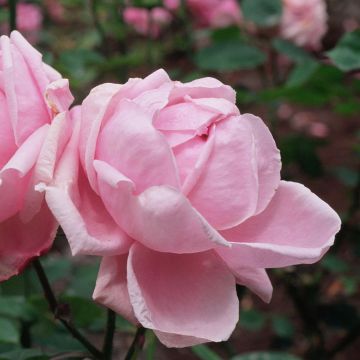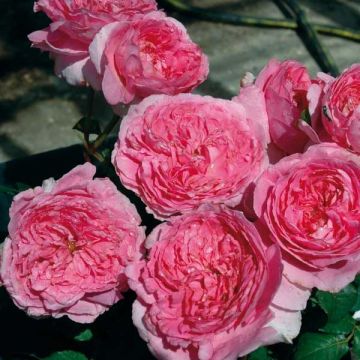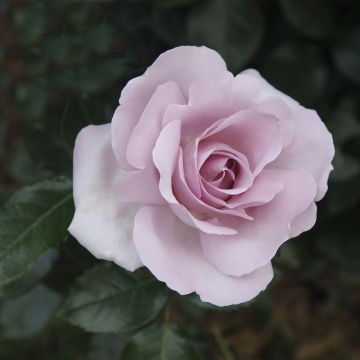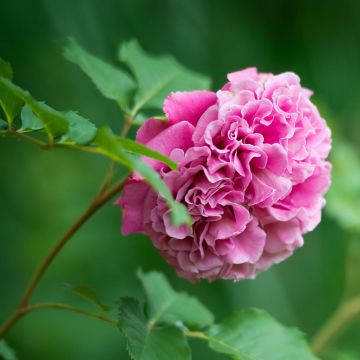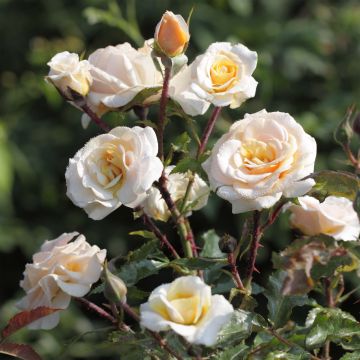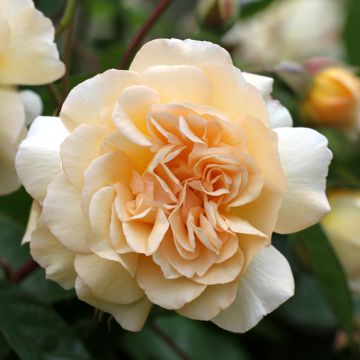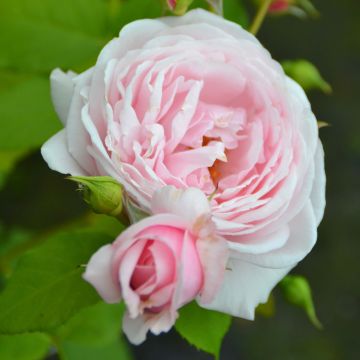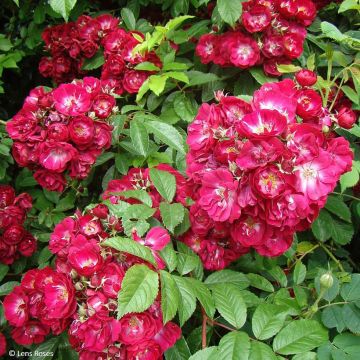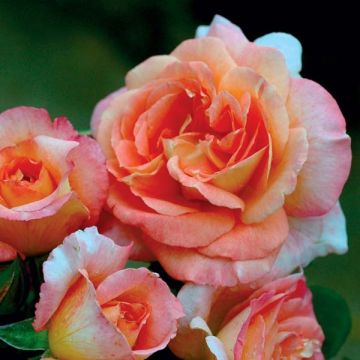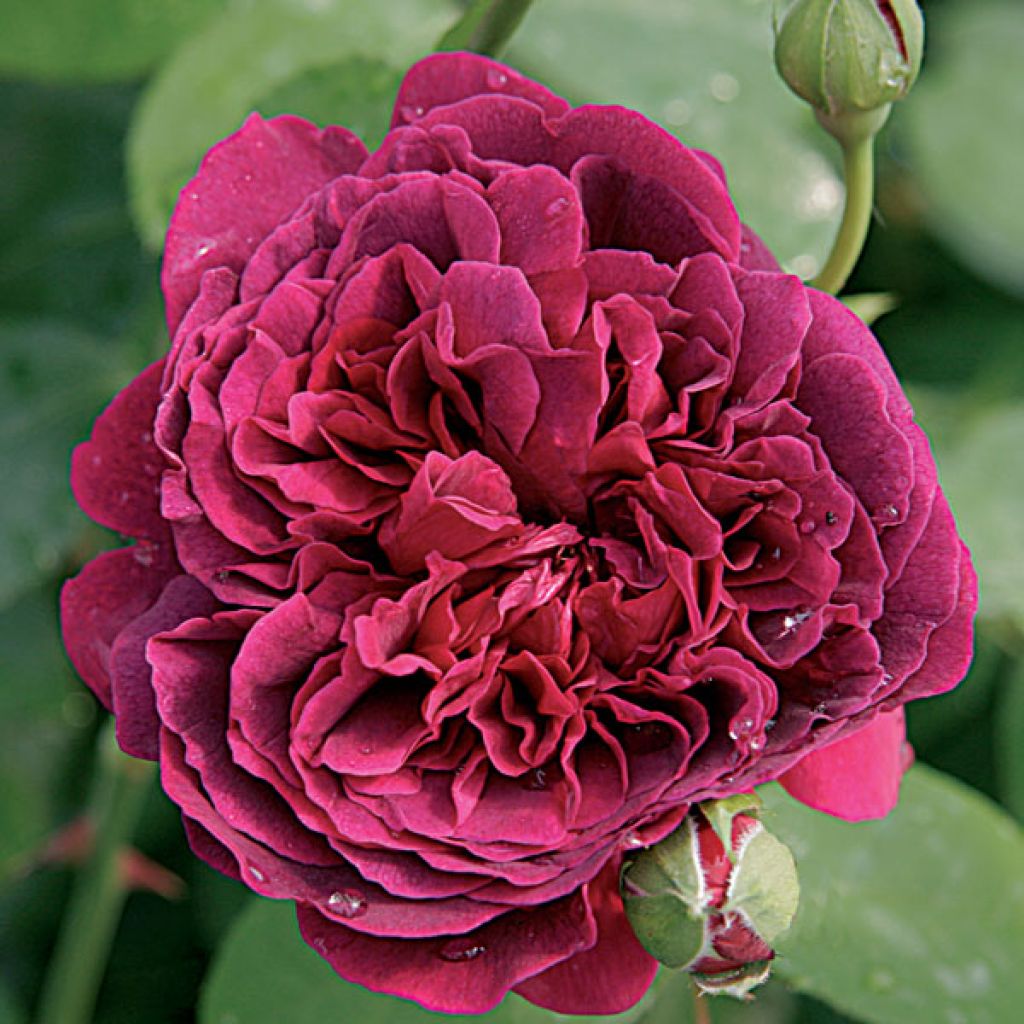

Rosa 'William Shakespeare 2000' - English Rose
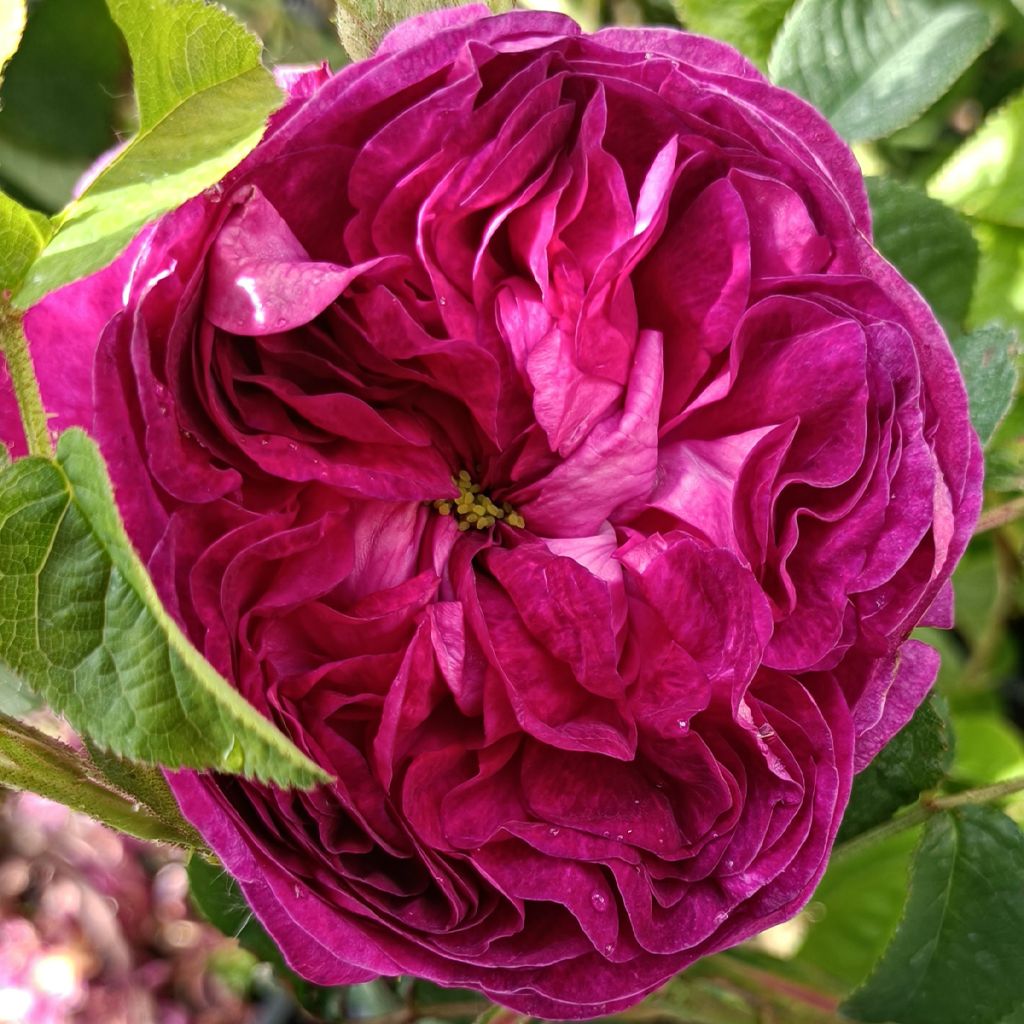

Rosa 'William Shakespeare 2000' - English Rose
Rosa 'William Shakespeare 2000' - English Rose
Rosa William Shakespeare® 2000 'Ausromeo'
Ausromeo
A very beautiful rose bush that withstands drought and the heat of this rather intense season very well. It has already bloomed twice since I received it. A wonderful colour very close to the photo on the website. A light and delicate fragrance. If you like roses with intense and rather dark colours, do not hesitate.
Nina, 13/08/2022
Why not try an alternative variety in stock?
View all →This plant carries a 24 months recovery warranty
More information
We guarantee the quality of our plants for a full growing cycle, and will replace at our expense any plant that fails to recover under normal climatic and planting conditions.
From €5.90 for pickup delivery and €6.90 for home delivery
Express home delivery from €8.90.
From €5.90 for pickup delivery and €6.90 for home delivery
Express home delivery from €8.90.
Delivery to Corse prohibited: UE law prohibits the import of this plant from mainland France to Corse as part of the fight against Xylella fastidiosa. Please accept our sincere apologies.
More information
Does this plant fit my garden?
Set up your Plantfit profile →
Description
The Rosier 'William Shakespeare 2000' expresses in its crimson velvet dress all the dramatic intensity conveyed by the work of the eponymous English writer, poet, and playwright. Forming a bush full of strength, elegant, with a slightly upright regular habit, it produces delicious and large flowers in quarters, intense red when they bloom, gradually taking on equally intense purplish hues over the days. The scent of these large roses is that of dark flowers: intense, warm, sweet, typical of old roses. The reliable rose has excellent disease resistance and blooms in successive waves from summer until October.
'William Shakespeare 2000' 'Ausromeo' is an English rose that stands out for the size, colour, and fragrance of its 12 cm (5in) diameter flowers, gathered in loose corymbs and produced abundantly from June until the frost. This variety has an upright, harmonious growth habit, bending gracefully outward at the top to form a bush with a regular habit, 1.10 m (4ft) tall and 80-90cm (32-35in) wide. It is a healthy, elegant, and floriferous rose. Its foliage is rather broad: the leaves have five to seven elliptical-ovate leaflets, and their colour is a fairly dark green, satin on the upper side and more cottony on the lower side. Its stems are armed with some thorns; they are quite resistant and do not require staking. The fragrance of the flowers is intense, with notes of myrrh and honey, and their colour is a deep, velvety, crimson red when they bloom, taking on more violet hues when fully ripe. When they bloom in a deep cup shape, the Rose opens into a flatter cup, organised in quarters.
The English rose 'William Shakespeare 2000', theatrical and nostalgic, evokes the splendour of a bygone era and hides the strength of old roses under its generous red blooms. Like other English roses, it can be planted in a mixed flower bed, with perennials or annuals with light flowering. It is a reliable value in the garden that can, according to preferences, integrate into a small hedge, stand out on the short grass meadow of a small garden, or even in a very large pot on the terrace. Its roses last long, both on the bush and in a vase.
This Rose belongs to the English Rose family, a term coined by the breeder David Austin himself. These Roses are obtained by cross-breeding an old rose (gallica, bourbon, etc.) with a Hybrid Tea or a Floribunda. English Roses are well known for being highly repeat-flowering, and their flowers are renowned for being beautiful, well-formed, and highly fragrant rosettes.
Bred by David Austin in 2000.
Report an error about the product description
Plant habit
Flowering
Foliage
Botanical data
Rosa
William Shakespeare® 2000 'Ausromeo'
Rosaceae
Ausromeo
Cultivar or hybrid
Rosa canina Laxa (Wrapped bare root, 4L/5L pot)
Other David Austin Roses
Planting and care
Plant your English Rose 'William Shakespeare 2000' in a sunny or lightly shaded area. English roses are tolerant to different soil types but do not thrive in soil with excessive limestone. These roses can grow in any garden if the soil is well-worked, not too heavy, and rich enough. To plant your rose, crumble the soil and add an amendment, such as blood, fish and bone, to the bottom of the planting hole. After planting, water generously to remove any pockets of air, and regularly for the first few weeks to help with rooting.
Pruning English roses is essential for better flowering. At the end of winter, in February-March, shorten the branches to 3-5 buds above the ground (at the lowest), choosing an outward-facing bud for a more elegant look. While pruning, remove any dead wood and unsightly branches. Make sure to prune at a slant above a bud. As the flowers bloom, remove faded flowers to stimulate the development of other buds.
Roses often have stains or may look unsightly towards the end of summer. However, this is not a problem for their development. These stains are natural and do not harm the rose.
Planting period
Intended location
Care
-
, onOrder confirmed
Reply from on Promesse de fleurs
Fragrant Roses
Haven't found what you were looking for?
Hardiness is the lowest winter temperature a plant can endure without suffering serious damage or even dying. However, hardiness is affected by location (a sheltered area, such as a patio), protection (winter cover) and soil type (hardiness is improved by well-drained soil).

Photo Sharing Terms & Conditions
In order to encourage gardeners to interact and share their experiences, Promesse de fleurs offers various media enabling content to be uploaded onto its Site - in particular via the ‘Photo sharing’ module.
The User agrees to refrain from:
- Posting any content that is illegal, prejudicial, insulting, racist, inciteful to hatred, revisionist, contrary to public decency, that infringes on privacy or on the privacy rights of third parties, in particular the publicity rights of persons and goods, intellectual property rights, or the right to privacy.
- Submitting content on behalf of a third party;
- Impersonate the identity of a third party and/or publish any personal information about a third party;
In general, the User undertakes to refrain from any unethical behaviour.
All Content (in particular text, comments, files, images, photos, videos, creative works, etc.), which may be subject to property or intellectual property rights, image or other private rights, shall remain the property of the User, subject to the limited rights granted by the terms of the licence granted by Promesse de fleurs as stated below. Users are at liberty to publish or not to publish such Content on the Site, notably via the ‘Photo Sharing’ facility, and accept that this Content shall be made public and freely accessible, notably on the Internet.
Users further acknowledge, undertake to have ,and guarantee that they hold all necessary rights and permissions to publish such material on the Site, in particular with regard to the legislation in force pertaining to any privacy, property, intellectual property, image, or contractual rights, or rights of any other nature. By publishing such Content on the Site, Users acknowledge accepting full liability as publishers of the Content within the meaning of the law, and grant Promesse de fleurs, free of charge, an inclusive, worldwide licence for the said Content for the entire duration of its publication, including all reproduction, representation, up/downloading, displaying, performing, transmission, and storage rights.
Users also grant permission for their name to be linked to the Content and accept that this link may not always be made available.
By engaging in posting material, Users consent to their Content becoming automatically accessible on the Internet, in particular on other sites and/or blogs and/or web pages of the Promesse de fleurs site, including in particular social pages and the Promesse de fleurs catalogue.
Users may secure the removal of entrusted content free of charge by issuing a simple request via our contact form.
The flowering period indicated on our website applies to countries and regions located in USDA zone 8 (France, the United Kingdom, Ireland, the Netherlands, etc.)
It will vary according to where you live:
- In zones 9 to 10 (Italy, Spain, Greece, etc.), flowering will occur about 2 to 4 weeks earlier.
- In zones 6 to 7 (Germany, Poland, Slovenia, and lower mountainous regions), flowering will be delayed by 2 to 3 weeks.
- In zone 5 (Central Europe, Scandinavia), blooming will be delayed by 3 to 5 weeks.
In temperate climates, pruning of spring-flowering shrubs (forsythia, spireas, etc.) should be done just after flowering.
Pruning of summer-flowering shrubs (Indian Lilac, Perovskia, etc.) can be done in winter or spring.
In cold regions as well as with frost-sensitive plants, avoid pruning too early when severe frosts may still occur.
The planting period indicated on our website applies to countries and regions located in USDA zone 8 (France, United Kingdom, Ireland, Netherlands).
It will vary according to where you live:
- In Mediterranean zones (Marseille, Madrid, Milan, etc.), autumn and winter are the best planting periods.
- In continental zones (Strasbourg, Munich, Vienna, etc.), delay planting by 2 to 3 weeks in spring and bring it forward by 2 to 4 weeks in autumn.
- In mountainous regions (the Alps, Pyrenees, Carpathians, etc.), it is best to plant in late spring (May-June) or late summer (August-September).
The harvesting period indicated on our website applies to countries and regions in USDA zone 8 (France, England, Ireland, the Netherlands).
In colder areas (Scandinavia, Poland, Austria...) fruit and vegetable harvests are likely to be delayed by 3-4 weeks.
In warmer areas (Italy, Spain, Greece, etc.), harvesting will probably take place earlier, depending on weather conditions.
The sowing periods indicated on our website apply to countries and regions within USDA Zone 8 (France, UK, Ireland, Netherlands).
In colder areas (Scandinavia, Poland, Austria...), delay any outdoor sowing by 3-4 weeks, or sow under glass.
In warmer climes (Italy, Spain, Greece, etc.), bring outdoor sowing forward by a few weeks.


































